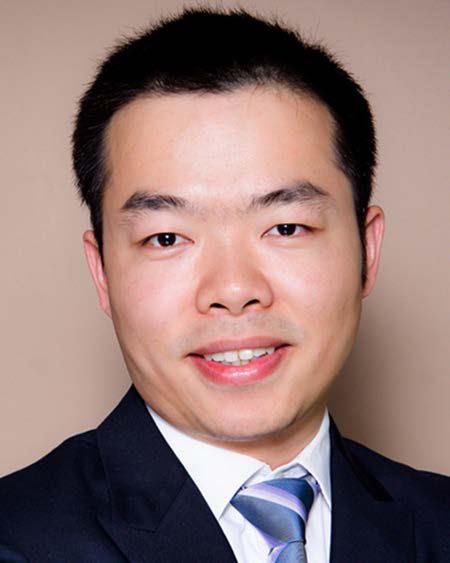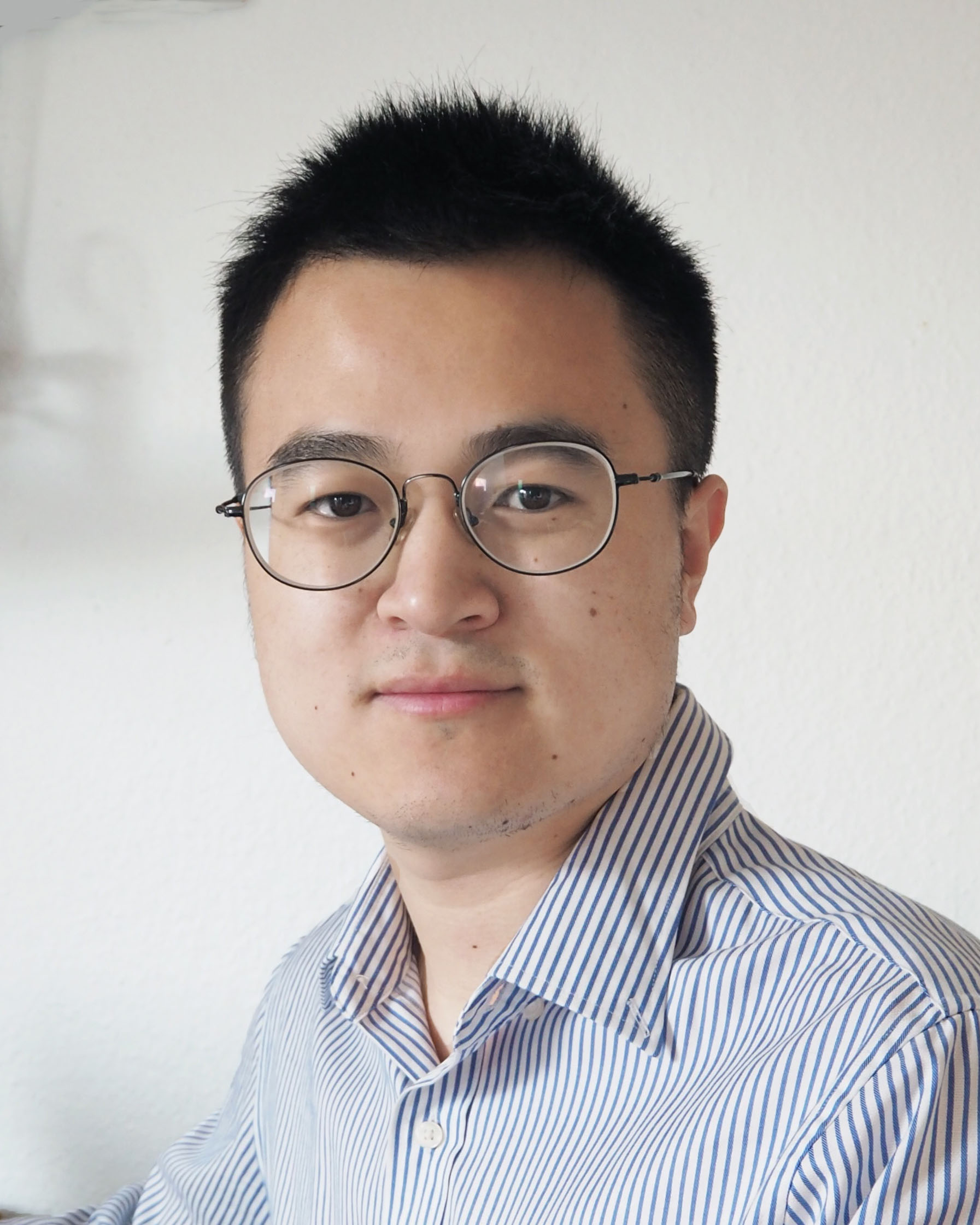


讲座主题:Condition and Health Monitoring in Power Electronics
讲座人:Prof. Huai Wang, Reliability of Power Electronic Converters (ReliaPEC Group) Department of Energy, Aalborg University
Dr. Yingzhou Peng, Center of Reliable Power Electronics (CORPE) in the Department of Energy, Aalborg University
讲座摘要:
Power electronic converters are applied almost everywhere today when electricity is generated, transmitted, converted, or utilized, from mobile phones to electric vehicles, from renewable energy generation to industrial manufacturing. While our society is moving forward to digital transformation, data analytics, e-mobility, and Industry 4.0, power electronics technology plays an increasingly important role in controlling and converting electrical energy in a precise way. They are all “energy-hungry” applications, and electrical energy is the essential element behind them. Applications such as e-mobility and offshore wind demand cost-effective and robust condition and health monitoring solutions for operation optimization and predictive maintenance for power electronic converters used.
This tutorial aims to present the state-of-the-art condition and health monitoring methods for power electronic components and converters. It starts with a brief introduction to there liability and availability challenges of power electronics in different applications, underlining the importance, function, and benefits of condition monitoring, and their demands on field applications. Then, it discusses the condition monitoring methods for power semiconductor switches, capacitors, and power electronic converters. A few case studies for three-phase inverter and DC-DC converter applications are used to illustrate the principles and associated practical considerations. Finally, it gives perspectives on the challenges and the gap between academic research and industrial applications in condition and health monitoring in power electronic converters. The target participants are: 1) University researchers who are interested in in condition and health monitoring techniques for power electronics, latest condition monitoring techniques, component-level and converter-level solutions; 2) Power electronic engineers who would like to have a better understanding in how to select and involve a proper condition monitoring technique in the power electronic system they are developing.
Outline of the Tutorial
Introduction to Reliability and Availability Challenges in Power Electronics Applications
Reliability issues and availability demands power electronics applications
Significance of condition monitoring techniques
Requirements of practical implementations for condition monitoring
Component-level Condition and Health Monitoring Methods
Component-level health indicators
State-of-the-art component-level methods
Case study 1 – capacitor condition monitoring
Case study 2 – IGBT condition monitoring
Converter-level Condition and Health Monitoring Methods
Converter-level health indicators
State-of-the-art converter-level methods
Case study 3 - a digital-twin based condition monitoring method for buck converter
Case study 4 – a physics-informed machine learning based method
Outlook on the Condition and Health Monitoring Methods
Challenges and opportunities
Research gaps to bridge for practical industry applications
讲座人介绍:
Huai Wang is currently a Professor at the Department of Energy, Aalborg University,Denmark, where he leads the Reliability of Power Electronic Converters (ReliaPEC) group.He is also the Mission Leader of Digital Transformation and AI at AAU Energy, with 12affiliated research groups, to enable the next leap in transforming energy systems bybridging the multi-disciplinary research and innovation in energy, digitalization, and AI.His research addresses the fundamental challenges and application issues in efficient,reliable, and cognitive power electronic converters functioning as the energy processorsfor our electrified and digitalized world. He collaborates widely with industry companiesacross the value chain from power electronic materials, components to systems. He hascontributed a few original concepts and methods to power electronics reliability and passive components and received 5 paper awards from IEEE and IET. In addition, he has lectured four short-term industrial/PhD courses, attended by more than 500 PhD students and industry engineers, and given more than 30 tutorials and 100 invited talks at universities, companies, and conferences.
Dr. Wang received his Ph.D. degree from the City University of Hong Kong and a B. E. degree from the Huazhong University of Science and Technology. He was a short-term visiting scientist with the Massachusetts Institute of Technology (MIT) in 2013 and ETH Zurich in 2014. He was with the ABB Corporate Research Center, Switzerland, in 2009. Dr. Wang received the Richard M. Bass Outstanding Young Power Electronics Engineer Award from the IEEE Power Electronics Society in 2016 for his contribution to the reliability of power electronic converter systems. He serves as the Chair of IEEE IAS/IES/PELS Chapter in Denmark and the editorial board of 4 journals from IEEE, Springer Nature, and Elsevier.
Yingzhou Peng is currently a Postdoc with the Center of Reliable Power Electronics (CORPE) in the Department of Energy, Aalborg University, Denmark. His current research interests include the reliability of power electronic systems, the failure mechanisms analysis of power semiconductor devices and capacitors in power converters, the improvement of the robustness and reliability of power converters by means of condition and health monitoring, the implementation of intelligent algorithm in condition and health monitoring of power electronics. In the last 4 years, he has contributed more than 10 journal and conference papers in the field of power electronics and reliability. Dr. Peng received the B.Eng. degree in electrical engineering from Harbin Engineering University, Harbin, China, in 2014, the M.Sc. degree in power electronics from Chongqing University, Chongqing, China, in 2017, and the Ph.D. degree in power electronics from Aalborg University, Aalborg, Denmark in 2020. He is currently working as a Postdoc with Aalborg University, Aalborg, Denmark. He was a Visiting Researcher with the Electrical Power and Energy Conversion Lab, Cambridge University, Cambridge, U.K, in 2020.
论文初稿提交截止时间
(
2021年6月30日 2021年7月20日
)
专题讲座、工业报告征集截止时间
(
2021年6月30日 2021年7月20日
)
论文录用通知时间
( 2021年8月16日 )
论文终稿提交截止时间
( 2021年9月15日 )
报名系统开放时间
( 2021年8月16日 )
注册优惠截止期
( 2021年10月12日 )
大会时间
( 2021年11月12-15日 )